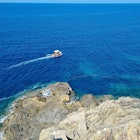
Jul 18, 2025 • 8 min read
Native Hawaiians want to raise awareness among travelers about how their visit impacts their homes. Here's what they want you to know before you visit

Jul 18, 2025 • 8 min read
Native Hawaiians want to raise awareness among travelers about how their visit impacts their homes. Here's what they want you to know before you visit

Jul 17, 2025 • 7 min read
Spanning the globe, the newest entries on UNESCO’s list of World Heritage sites celebrate natural treasures and human ingenuity.

Feb 18, 2025 • 7 min read
New Zealand’s newest Great Walk opens to the public in October 2024. Here's everything you need to know to book a place on these multiday hikes.

Feb 10, 2025 • 7 min read
Your local guide to the biggest changes reshaping Paris in 2025, from urban beaches on the Seine to museum openings and simplified metro fares.

Jan 30, 2025 • 3 min read
The Yosemite Firefall is a stunning natural phenomenon that needs to be seen in person to be believed. Here’s how to make it happen in 2025.

Jan 21, 2025 • 7 min read
In Rome, 2025 is the year of the Vatican Jubilee, bringing crowds, chaos and a chance to see Rome at its fullest. Here's what you need to know.

Nov 16, 2024 • 4 min read
You’ve seen them on TikTok. Now try them IRL.

Oct 31, 2024 • 5 min read
It’s official: Notre Dame Cathedral in Paris will reopen its doors on December 8, 2024. Here’s what travelers need to know about visiting.

Aug 9, 2024 • 7 min read
After 12 years and a €23 million rehabilitation project, the famous Cinque Terre path is finally fully reopened to visitors.

Jun 28, 2024 • 6 min read
Plan a trip to explore these locations that make appearances in the series' three seasons.

Jun 13, 2024 • 7 min read
France's most iconic sites often come with a crowd. Here are some alternative places to visit.

Jun 11, 2024 • 5 min read
Dreaming of moving to Australia? Here’s all you need to know if you are thinking of applying for a working holiday visa.

Jun 11, 2024 • 5 min read
Starting this month, Machu Picchu has introduced new circuits to preserve the archeological site. Here's how to find the right route for you.

Jun 3, 2024 • 6 min read
Country legend Dolly Parton shows no signs of slowing down with the opening of a new museum at her namesake theme park.

May 23, 2024 • 4 min read
Following severe turbulence on a Singapore Airlines flight this week, we take a look at what turbulence is and the risks to passengers.

Apr 19, 2024 • 4 min read
A new walkway will make it easier to navigate Rome's ancient sites. But what does it mean for the locals?

Apr 3, 2024 • 6 min read
JetBlue has launched a new route from New York City to Dublin, and we were lucky enough to try it out.

Mar 27, 2024 • 5 min read
Japan is set to limit visitors at some popular attractions so that sites don't suffer from overtourism. Here's what you need to know.

Mar 26, 2024 • 3 min read
The Antoni Gaudí-designed church has been under construction for more than a century

Mar 25, 2024 • 2 min read
To combat overtourism and promote sustainability, authorities on the Galápagos Islands are raising fees this summer for most visitors from US$100 to $200.

Mar 22, 2024 • 5 min read
Late-night dining has recently been criticized by a government minister in Spain. So could things be about to change?

Mar 13, 2024 • 3 min read
Weather conditions this year may be just right to bring wildflower super blooms to life in parts of California.